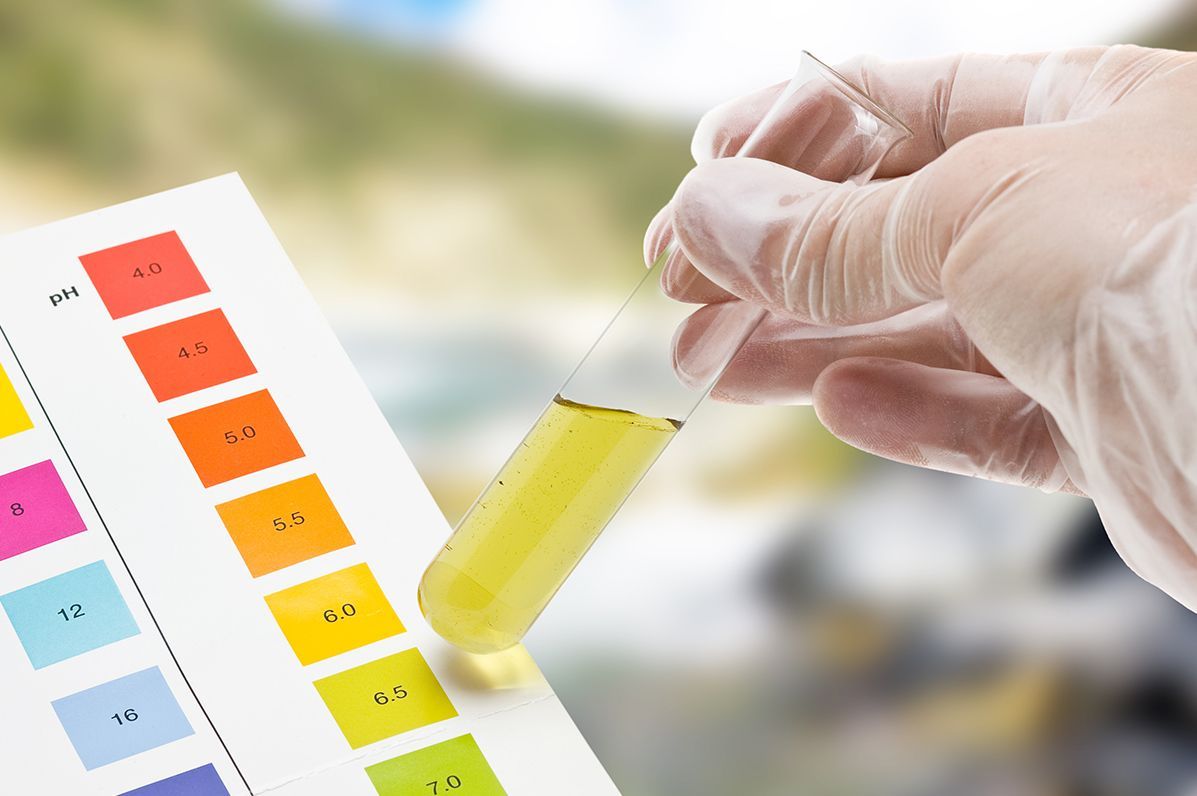Alkaline Water - What Alkaline water manufacturers don't tell you
The dangers of Alkaline Water consumption in Scottsdale, AZ

What is alkaline water?
Alkaline water is water that has a higher pH level than regular drinking water. The pH scale ranges from 0 to 14, with 7 being neutral. A pH below 7 is considered acidic, while a pH above 7 is considered alkaline or basic.
Alkaline water typically has a pH level between 8 and 9, although some brands may claim even higher pH levels. The higher pH is achieved by adding alkaline minerals or electrolytes to the water. Common minerals used to make water alkaline include calcium, magnesium, potassium, and bicarbonate.
There are two primary ways alkaline water is produced:
- Electrolysis: Water can be ionized through a process called electrolysis, where an electric current is passed through it, separating the water into alkaline and acidic components. The alkaline portion becomes the alkaline drinking water.
- Additives: Alkaline minerals, such as calcium and magnesium, can be added directly to water to raise its pH level.
Advocates of alkaline water claim several potential health benefits, such as better hydration, improved digestion, and neutralizing acid in the body. However, the scientific evidence supporting these claims is limited and often controversial. The human body has natural mechanisms to regulate its pH levels, and drinking alkaline water is unlikely to have significant health effects for most people.
It's essential to note that individuals with specific health conditions or those taking medications should consult their healthcare provider before significantly altering their water consumption or diet. As with any health-related topic, it's always best to rely on evidence-based research and consult with medical professionals for personalized advice.
The Buzz About Alkaline Water:
Unraveling its Properties and Potential Dangers
Alkaline water has gained considerable attention due to the health claims surrounding it. Some companies assert that alkaline water can work wonders, from slowing down the aging process to preventing chronic diseases like cancer, all while regulating the body's pH levels.
In simple terms, alkaline water refers to water with a pH level higher than 7.0, which is considered "neutral" on the pH scale. On the other hand, acidity is associated with a pH lower than 7.0. You can find acidic substances like lemon juice, vinegar, and battery acid, while alkaline substances include everyday items like baking soda and milk of magnesia.
For those concerned about the potential hazards of drinking alkaline water, installing a tap water filter at home can be an effective way to remove harmful chemicals, purify the water, and restore it to a neutral pH state. This step ensures that you have access to safe and clean drinking water, providing peace of mind and promoting overall well-being.
What Does Alkaline Water Do to Your Body?
Spurious claims from companies frequently suggest alkaline water can “energize” and “detoxify” the body, resulting in “superior hydration.”
Dangers of drinking alkaline water:
Our stomachs secrete hydrochloric acid, which is very strong acid with a pH of around 1.5 to 3.5. Our bodies utilize this acid to kill pathogens in our food and digest proteins efficiently, making it an important part of digestion. As a result, slightly alkalized water quickly gets neutralized by the highly acidic environment in the stomach.
Strongly alkalized water, with a pH of 11 or higher, poses similar risks to consuming highly acidic drinks.
It can act as an irritant to your eyes, skin, and mucous membranes. Additionally, the World Health Organization warns that strongly alkaline water can lead to gastrointestinal problems.
These alkaline water dangers are just a small part of a bigger range of risks associated with consuming non-neutral water.
Metabolic alkalosis is a condition that can arise from a disruption of the body’s normal pH through the consumption of alkaline water.
This can provoke the emergence of serious health issues such as confusion, vomiting, nausea, hand tremors, muscle twitching, and tingling in the hands, face, or feet.
Is Alkaline Water Safe for You? Understanding the Potential Dangers
Alkaline water is generally considered safe for consumption, but it's essential to be aware of the potential risks associated with its use.
Clean and filtered water with a neutral pH is vital for maintaining balance within your body. This balance is crucial for various biochemical processes that rely on specific pH levels, helping your body function optimally and promoting good health.
Altering the body's pH through the consumption of alkaline water can disrupt enzyme activity, which plays a vital role in essential chemical processes within the body. Such disturbances can have serious consequences and may require urgent medical attention to prevent potential damage to vital organs like the brain, heart, and kidneys.
The Dangers of Alkaline Water:
Interactions with Medication
If you are on medication, beware of the potential dangers of drinking alkaline water. Research indicates that alkaline water can react with many medications, resulting in the production of dangerous and toxic chemicals inside the body. To ensure your safety during treatment, opt for clean filtered water and avoid consuming alkaline water while on medication.
Alkaline Water and Digestive Health: Considerations for Your Diet
When considering alkaline water, it's crucial to think about its impact on your digestive system and overall nutrition. The efficiency of your digestive system relies on maintaining optimal pH levels, particularly in the stomach, where chemical processes break down food and absorb essential nutrients. Alkaline water consumption may limit nutrient absorption and affect the function of pepsin, a crucial enzyme for breaking down proteins and supporting cell growth and repair.
Alkaline Water's Potential Impact on the Immune System
Maintaining a balanced pH in the gut is vital for the body's defense against pathogens present in food and drinks. The stomach's highly acidic environment acts as a first line of defense against harmful microorganisms, preventing them from causing diseases. However, drinking alkaline water can raise the stomach's pH, weakening the immune system's ability to fight off pathogens, making the body more susceptible to infections. Understanding the potential dangers of alkaline water can help you make informed decisions about your health.
Alkaline Water Health Risks: Beyond the Basics
While we've discussed the primary risks of alkaline water, it's essential to be aware of other potential health issues associated with its consumption:
- Digestion Problems: Alkaline water can disrupt nutrient absorption, leading to indigestion and malnutrition, particularly for individuals over 60 years of age. This condition, known as milk-alkali syndrome, can cause lower-than-normal calcium levels, negatively affecting the digestive system and even the brain.
- Cardiovascular Problems: Animal studies reveal that rats consuming alkaline water experienced severe and permanent damage to their cardiovascular systems, posing risks to the heart and other components of the circulatory system.
- Dehydration: High levels of ions in alkaline water can force the body to expel water, leading to dehydration on a cellular level with no health benefits.
- Bone Health Issues: Excess alkaline substances in the body can result in alkalosis, decreasing usable calcium and potentially weakening bones and impairing the body's ability to repair skeletal damage.
Alkaline Water and Its Impact on Kidney Function
Maintaining healthy pH levels is crucial for kidney function. Altering the body's pH through the consumption of alkaline water puts extra strain on the kidneys and hinders their ability to carry out essential tasks that ensure overall health. Furthermore, the accumulation of chemicals found in alkaline water within the kidneys can lead to further impairment of kidney function, potentially yielding severe consequences.
Beware of Alkaline Water Side Effects
Frequent consumption of alkaline water can lead to various side effects, including vomiting, hand tremors, muscle twitching, tingling or numbness in extremities and face, muscular pains, and headaches. It's crucial to exercise caution and limit alkaline water consumption or avoid it altogether to minimize these potential side effects and prioritize your well-being. Staying hydrated with fresh, clean water obtained through a tap water filter is the best approach for maintaining overall health.
Altering the body's pH through the consumption of alkaline water can disrupt enzyme activity, which plays a vital role in essential chemical processes within the body. Such disturbances can have serious consequences and may require urgent medical attention to prevent potential damage to vital organs like the brain, heart, and kidneys.
While some companies claim various health benefits for alkaline water, it's important to be cautious and prioritize the balance of your body's pH through pure, neutral-pH water. Consulting with a healthcare professional can provide personalized insights on how to maintain your body's optimal pH levels and overall well-being.






